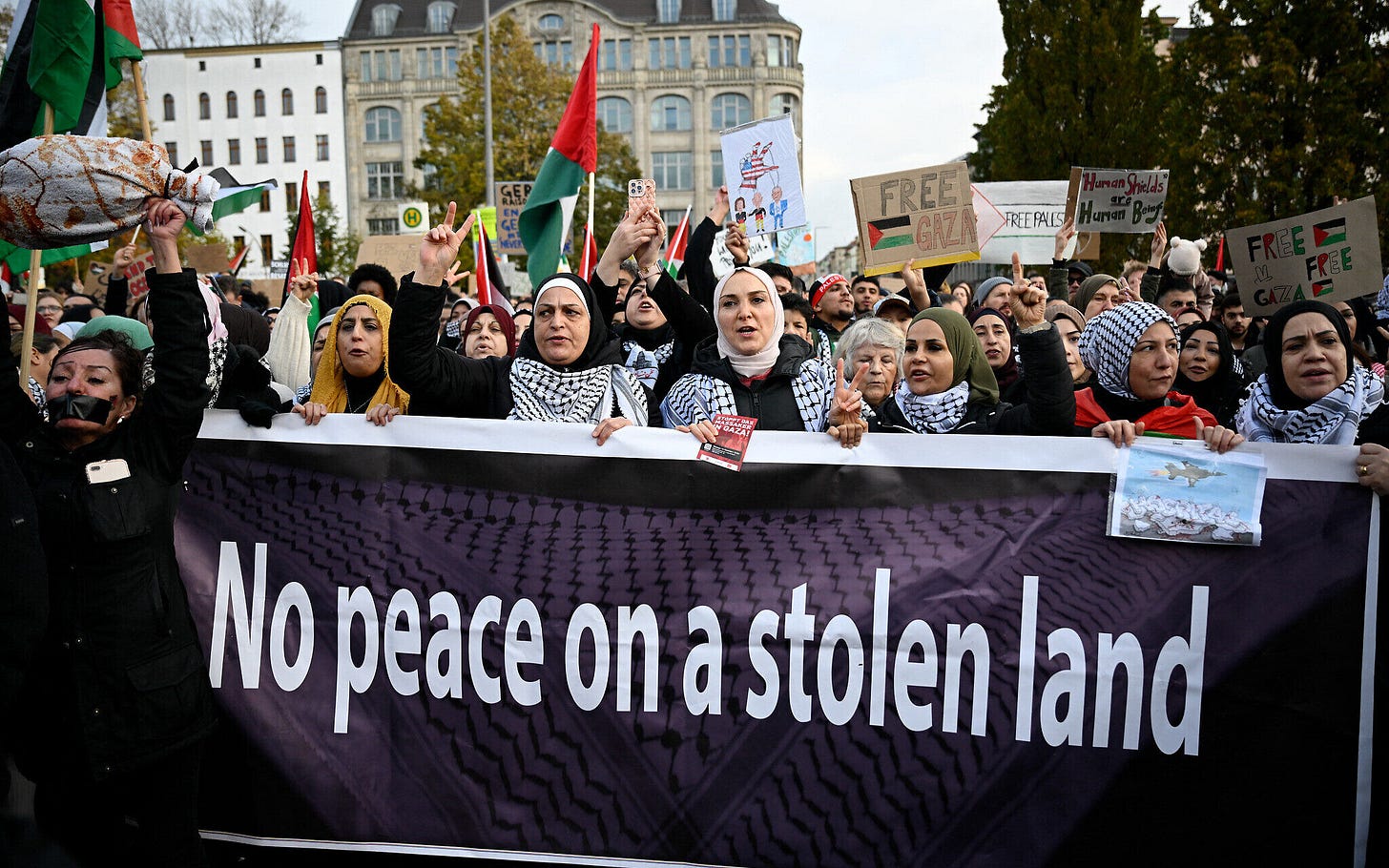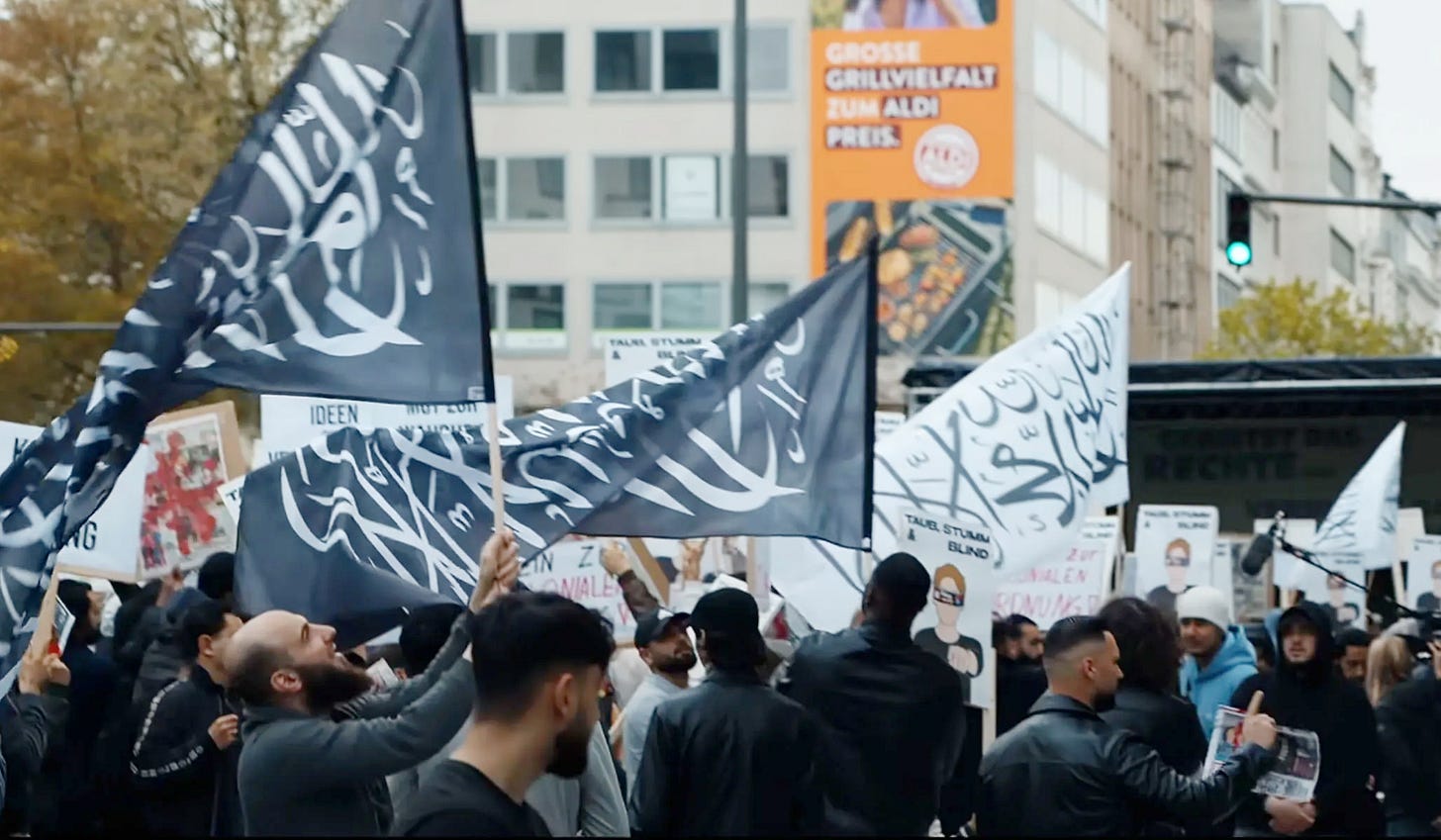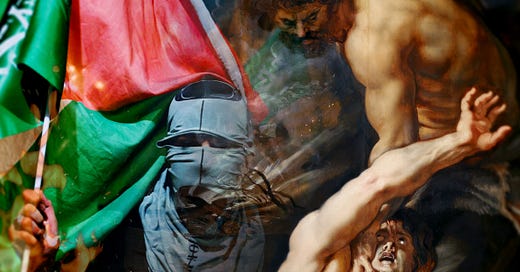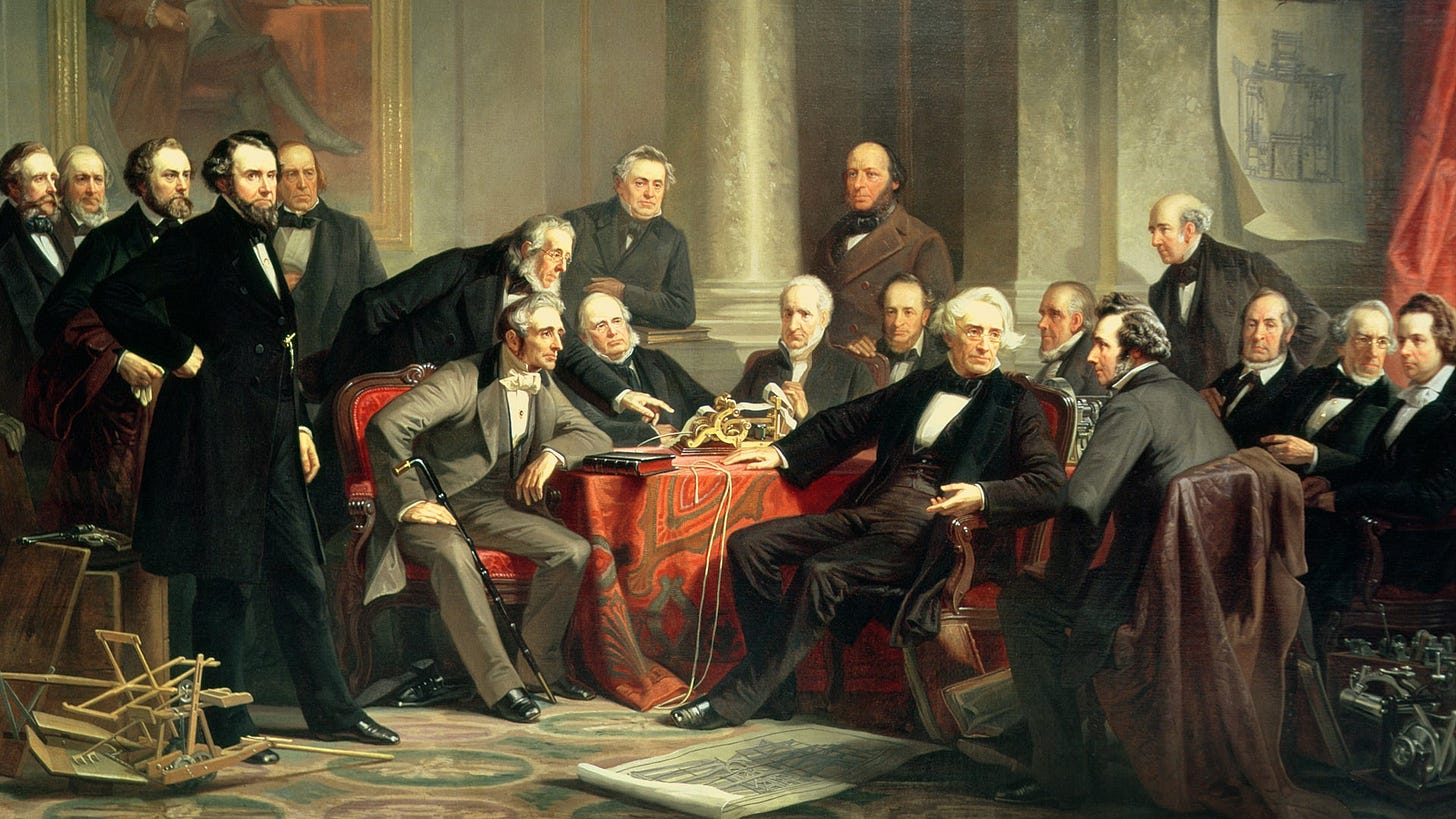Islam Isn't the Religion of Peace; It's the Religion of Envy
History shows that those who restrict freedoms are often consumed by Envy of those who enjoy them.
The Evil Eye reflects the central role of Envy in Islamic cultural consciousness. Amulets like the Nazar, widely used to ward off this evil gaze, silently acknowledge the pervasive resentment within tightly controlled and hierarchical societies. This cultural fixation reveals a more profound truth: Envy is not only recognized but ritualized in Islamic culture, and it lies at the heart of the Islamic world’s hostility toward the West, most conspicuously projected through the Palestinian cause.
For Europe, multiculturalism has become the official religion, to the point where any criticism of any group is equated with profanity. Islamists have long understood that they need only allude to racial bias—or cry "Islamophobia"—to make Europeans gasp with embarrassment.
However, you cannot be multicultural and simultaneously preach murderous hatred of Jews, nor can you be multicultural while harboring homicidal hostility toward our most important allies and friends, the United States and Israel.

This hypocrisy is rooted in Envy—a deep resentment of the freedoms and success that Western and Jewish communities have achieved through pluralism and progress. The immutable hostility of the Muslim world towards the West and the Jews has a long history. Yet, while their hostility has grown over the last decade, waves of Muslims continue immigrating to the West, choosing to live among "infidels" rather than their fellow Muslims in other Islamic countries.
This contradiction, alongside their explicit declarations of anti-Western and antisemitic sentiments since October 7, led me to an epiphany: The Palestinian cause isn’t about justice. It serves as a projection surface for the Islamic world’s collective frustrations. The Palestinian cause is the culmination of Muslim Envy.
The Muslim country's vociferous declaration of solidarity while simultaneously refusing to integrate Palestinian refugees exposes the hypocrisy and escapism at play. Kept as perpetual victims, the Palestinians have one tragic purpose: to distract from the Muslim world's failings. It’s not about solving the problem—it’s about avoiding accountability, deflecting internal issues, and sustaining a narrative as both a moral shield and a means of psychological venting.

This paradoxical dynamic was captured succinctly in an interview by the late Berkshire Hathaway vice president Charlie Munger, who said, "Envy drives the world, not greed." Unlike greed, Envy is inherently comparative—it isn't about wanting more but about wanting what others have.
To understand Envy's complex interplay of cultural and systemic variables, we must analyze it through the psychological lens of deprivation and comparison. Humans naturally compare themselves to others and become envious, if not hostile, when those comparisons are unfavorable. Once this destructive cycle emerges, individuals or societies seek to diminish or destroy the perceived threat or object of Envy.
The allegory of Cain and Abel, shared across all Abrahamic religions, illustrates how unchecked Envy leads to destruction. Cain's inability to accept perceived inequality culminates in murder—the first act of violence in Abrahamic lore. Framing Envy as a cardinal sin and humans as flawed by design, the system demands the believer suppress their resentment through guilt and devotion. In doing so, the system deflects attention from the structural inequalities and sadomasochistic dynamics it creates, avoiding accountability.
Yet, Envy can also catalyze growth when channeled constructively. If a culture acknowledges Envy and uses it as motivation to improve—by expanding freedoms, encouraging innovation, and embracing pluralism—societies evolve rather than stagnate.
While Christianity and Judaism adapted to modern values, Islam has entrenched the Envy born from its systemic stagnation and repression, stubbornly resisting reforms.
In the West, Envy is often linked to personal ambition and achievement within an open and secular system. In contrast, Envy stems from an existential yearning for freedoms and opportunities structurally denied in the Islamic world.
Christianity, particularly in Europe, underwent profound transformations with The Age of Enlightenment. The rise of humanism, rationalism, and science forced the Church to confront its dogmas. By adapting to the separation of Church and state and embracing the concept of pluralistic societies, the Church successfully incorporated Enlightenment values such as democracy, human rights, and freedom of thought while remaining relevant in modern society.
Similarly, the Jewish Enlightenment (Haskalah) in the 18th century facilitated intellectual and cultural renewal. Jewish thinkers embraced secular education and rationalist philosophy and drove the integration into broader society while maintaining a cultural identity. Reform Judaism and Modern Orthodoxy emerged, balancing tradition with contemporary values. This intellectual openness helped Judaism withstand challenges such as diaspora, persecution, and modern antisemitism, remaining dynamic and adaptable.
Islam, by contrast, remains the most reactionary ideology today because it actively resists the intellectual and social transformations that have allowed other traditions to evolve. Islamic doctrine rejects pluralism, gender equality, freedom of speech, and secular governance, viewing them as antithetical to Sharia law.
Unlike isolated reactionary movements like the Mormons, Islam's political and ideological influence extends globally through states, organizations, and communities. This reach includes fuming, bearded Imams calling for the punishment of unbelievers, for homosexuals to be thrown off buildings, demanding the chastisement of "inferior" and disobedient women, and inciting violence against Jews. Little girls as young as seven are taught to wear the Hijab, and the age of consent is set as low as nine in emulation of the prophet Muhammad's youngest wife. Apostasy laws, blasphemy laws, and the severe persecution of dissidents ensure that any attempts at reform are suppressed before they can even begin.

Thus, the Palestinian cause, far from being a genuine land dispute, has become a metaphor for the Islamic world's Envy—a cycle of resentment that reinforces repression and delays progress.
Envy in Islamic culture functions as a cyclical cause-and-effect loop. Islamic societies impose severe restrictions on personal freedoms—dictating what to wear, how to express oneself, or even whom to love. These regulations create a pervasive sense of loss or longing, intensifying Envy toward those who enjoy such liberties. When Muslims witness Western societies flourishing, the perceived gulf between "what is" and "what could be" fuels resentment, especially as these freedoms are framed as unattainable or immoral by religious and cultural authorities. Ironically, this Envy often reinforces the very structures of inequality that gave rise to it, trapping these societies in a perpetuating cycle of resentment, repression, and arrested development.
Islam is a patriarchy that emphasizes honor and pride, traits indicative of narcissism and ego struggles. Narcissism, after all, is the godfather of Envy. And any concept or identity that denies reality eventually self-destructs. Breaking the cycle of Envy and repression will not only end the Palestinian conflict and suffering but also allow the Islamic world to achieve growth, freedom, and peace.
Although it may seem distant, I remain optimistic that in our rapidly evolving world—where over five billion people have internet access—the ubiquity of global connectivity and advancements in AI will catalyze unimaginable change, posing a formidable challenge even to the most reactionary ideology of all: Islam.








Well said, as always! Islamists are reframing their own envy as moral outrage. It can never be satisfied, which is why countries that are fully taken over by radical Islam find no peace from following their own edicts.